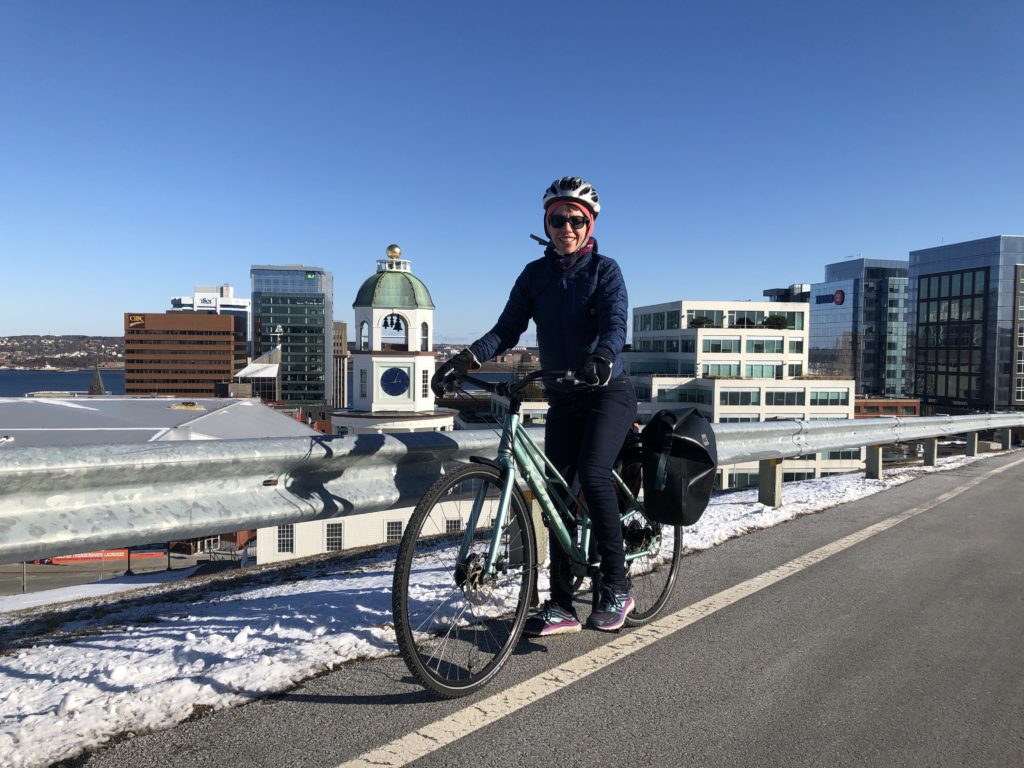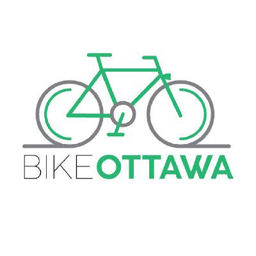This month we’re spreading Bike Love and featuring stories from local and not-so-local people about their own Bike Love. We are very happy to have Jillian Banfield, the Halifax Bike Mayor for our first guest post. Thank you Jillian for sharing your story with us.

My bike is my mobility aid. Much like some people use wheelchairs or white canes, my bike allows me to move about the world when I otherwise couldn’t. I feel lucky to have stumbled upon this solution for my mobility needs that also provides me fresh air, exercise, and a close community of #BikeHfx friends and family. My love for my bike, though, is complicated by ableism in society and the internalized ableism that I have only started to unlearn in my 30s
despite a lifetime of disability and chronic illness.
As a kid, I was taught to be careful. Be very, very careful. My joints were painful, so a slip on the ice or playing tag at recess were to be avoided. I sat out many activities in gym class because no alternatives were offered. There was only one standard to be met, only one way to get a good grade in that class. The stress of trying to conform to that standard, the feeling that there was something wrong with me haunts me to this day.
My piano lessons stopped when the teacher decided my hands – with their stiff and swollen knuckles – couldn’t do what was necessary. Again, there was only one way to learn, one way to play well.
I loved to swim. My body could move so freely, the water hid my uncoordinated movements and protected my tender joints. During physio appointments, I swam in a very hot, very chlorinated pool, mostly populated by older folks at the rehabilitation centre. I pretended I was a fish.
Again, though, swimming lessons chipped away at my feelings of belonging. I reached a level where I could not physically meet a requirement to pass to the next level. I tried 3 times to get my blue badge, then I stopped, angry that my legs would never kick the “right” way.
In cycling, I face some of the same challenges. I was slow to graduate from my training wheels. I feared falling, I lacked coordination and confidence in my body. As an adult, I embraced cycling, both out of love and out of need. I ride a standard 2-wheel bicycle and I can ride for hours. I know that these facts mean that people perceive me as nondisabled and as partaking in a niche sport. I feel compelled to convince people that I’m disabled. I work to convince people that it’s not just me – that bikes and cycling infrastructure can help loads of people like me.
My bike love is complicated because my early experiences taught me that my body didn’t belong and wasn’t worthy of inclusion. Since I started cycling, I found a way in which my body can flourish. But riding a bike also erases my disability experiences because of ableist assumptions about what disability is and who cyclists are. For me, though, bikes can be tools for inclusion, and that fact pedals me forward.
— Jillian Banfield

